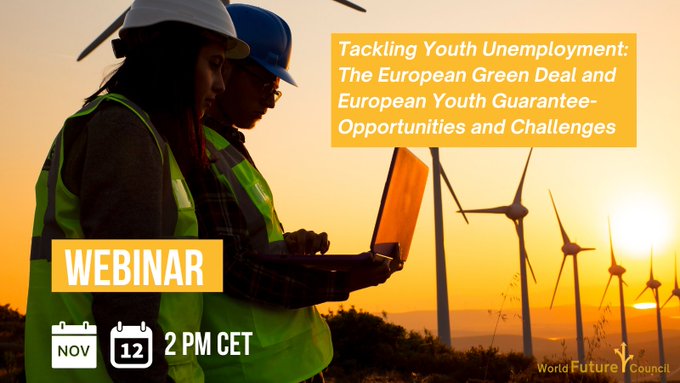
Online Event
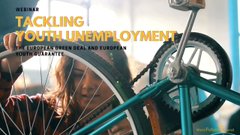
The European Green Deal and the reinforced European Youth Guarantee: Will they help to tackle Youth Unemployment? Opportunities and Challenges with focus on Greece and Spain
12th November 2020
Time: 2-3.30 pm CEST
The webinar is a collaboration of the World Future Council with the pilot projects GRÆDUCATION and EUKI YesClima and their partners. Anemos Ananeosis / Wind of Renewal is participating in the preparation of the event and the pannel of the discussion.
The event would like to discuss with participants and audience if and how a Green Sector offers a unique chance to involve young women and men endangered by economic exclusion, in particular by implementing the goals set out in the European Green Deal (EGD) and the corresponding National Energy and Climate Plans (NECPs). The online event provides a forum for EU parliamentarians, representatives of the national focal points of the Youth guarantee as well as young people and civil society working in this field to report on the specific situation in their countries. Best practices for measures, educational cooperation and policies will also be presented to initiate new ideas and to plan their implementation. The online event enables for discussions about the remaining tasks of the member states to develop programmes on how to (financially) implement the European Youth Guarantee in light of green recovery policies and the challenges of climate protection.
To be successful in reducing youth unemployment in light of the European Green Deal we will need strong European networks for an effective exchange of knowledge, sustainable cooperation and good policies. The online event aims to give an impulse to develop such networks and showcases some innovative policies.
Chair: Samia Kassid, Germany. Senior Programme Manager – Rights of Children and Youth, World Future Council.
Our Keynote Speakers
– Prof. Dr. Lina Gálvez Muñoz, MEP, Vice Chair of Committee on Industry, Research and Energy
– Max Uebe, European Commission, Head of Unit, Directorate-General for Employment, Social Affairs and Inclusion B1 Employment Strategy
– Dr. Spiros Protopsaltis, Governor of OAED Manpower Employment Organization Ministry of Labour and Social Affairs, Vice Chair of European Network of Public Employment Services, Greece
A moderated discussion with
– Nikos Chrysogelos, Wind of Renewal: Youth unemployment, EYG and the challenges in Greece
– Silke Steinberg, FIAP, e.V.: GRÆDUCATION: a systemic approach for innovative, greennvocational training as change agent for labor markets (Best Practice)
– Afroditi Strati, Young Voice from Greece
– Ms Sandra García Lopez, Public Employment Service, Spanish Youth Guarantee Coordinator
– Dr. Silke Karcher, German Federal Ministry for the Environment, Nature Conservation and Nuclear Safety / EUKI (Policy Example) (tbc)
– Prof. Dr. Francisco José Sánchez de la Flor (Universidad de Cádiz): YesClima: Lifelong Education (Best practice)
– Mario Férnandez Ardanaz, Vice-President of the Provincial Government of Cádiz: Tackling Youth Employment in the province of Cádiz.
– Paula García Rodríguez, Young Voice from Spain
– Ian Menzies, Senior Education Officer, Education Scotland: Scotland’s Youth employment strategy: Developing the young workforce (Policy Example)
In our web-event we will discuss if and how a Green Sector offers a unique chance to involve young women and men endangered by economic exclusion, in particular by implementing the goals set out in the European Green Deal (EGD) and the corresponding National Energy and Climate Plans (NECPs). The Green Recovery will create new business and service opportunities for which today’s youth will need to be prepared.The European Commission’s initiative to “reinforce the Youth Guarantee” aims to support young people in gaining work experience and developing skills as well as to boost employability for a green economy. There is no doubt that the COVID-19 crisis will worsen employment opportunities, and it is feared that young women and men are hit hardest being excluded from qualified work. The exclusion of (not only!) the European youth from economic activities will increase intolerably, particularly in regions with an already high youth unemployment.
Therefore, the focus of the reinforced Youth Guarantee should also be on employment in innovative, emerging professions that are important for a sustainable Europe and in Subscribe Past Issues Translate creating jobs with a focus on “Green Skills”.
Today, youth make up 37 % of the global working-age population, but account for 60 % of the total unemployed. According to OECD, global youth unemployment rate is three times higher than for adults. The youth labour market is highly sensitive to economic cycles and in times of economic crisis youth employment is hit more strongly by economic shocks than adult employment. Young workers are often “first out”. During the 2008 crisis, one in ten jobs in Europe held by workers under 30 were lost. In Spain, Greece and Ireland, half of working young people lost their jobs between 2007 and 2014. Twelve years after that recession and despite economic recovery across the OECD, youth employment rate stagnated since 2010 and never recovered to pre-2008 crisis levels. Economic crises force young people into long-term unemployment, inactivity and discouragement which affects their long-term career prospects. The impacts of the COVID-19 pandemic on youth labour market outcomes will be severe in developed, emerging, and developing countries. Economies with high rates of informal employment are particularly vulnerable to shocks. The lockdowns and the spread of the virus mean millions of young people lack social protection, income benefit in case of sickness, and are at risk through inadequate access to universal health care.
The reinforced Youth Guarantee will play a crucial role to tackling youth unemployment in Europe, especially in countries like Greece or Spain. The World Future Council and its partners, the Diputación de la provincia de Cádiz, Universidad de Cádiz, FIAP e.V. (Gelsenkirchen), the Sekretariat für Zukunftsforschung(Berlin) and Wind of Renewal (Greece), welcome the Commission’s initiative to “reinforce the Youth Guarantee” and have submitted in May 2020 a memorandum to the European Commission advocating for adequate training of young people to create new jobs that are in line with the European Green Deal. On top prevocational and vocational qualifications must be improved and should form part of the educational system.
About the World Future Council
The World Future Council (WFC) works to pass on a healthy and sustainable planet with just and peaceful societies to our children and grandchildren. To achieve this, it focuses on identifying, developing, highlighting, and spreading effective, future-just solutions for current challenges humanity is facing, and promote their implementation worldwide. The Council consists of 50 eminent global change-makers from governments, parliaments, civil societies, academia, the arts, and the business world. Jakob von Uexkull, the Founder of the Alternative Nobel Prize, launched the World Future Council in 2007. It is an independent, non-profit organisation under German law and finance our activities with institutional partnerships and donations.
The World Future Council works on solutions to some of the most pressing challenges by finding and spreading exemplary laws and policies that have a proven record of producing positive impacts both for current and future generations, working with parliamentarians, policy makers and relevant stakeholders as well UN bodies at an international level. The World Future Council recognises the increased and urgent need of empowering youth regarding access to decent jobs, including green jobs. In 2019, the Future Policy Award, also known as the “Oscar for best policies”, highlighted exemplary laws and policies that foster enabling environments for youth so that they can develop their full potential, realize their dreams, and contribute to the success of Agenda 2030 and the Sustainable Development Goals. The Future Policy Award worked in partnership with the Inter-Parliamentary Union and the United Nations Development Programme, with support of the Office of the UN Secretary-General’s Envoy on Youth, the International Labour Organization, and Youth Policy Lab. www.worldfuturecouncil.org
GRÆDUCATION
IThe BMBF funded project GRÆDUCATION provides important solutions to this problem in Greece. Together with the Greek Employment Agency O.A.E.D. and the Greek Ministry of Education, FIAP e.V. and the German Greek Chamber of Industry and Commerce are initiating collaborations between German and Greek vocational educators to “green” technical training and qualifications. In addition, the focus is also on interdisciplinary, transformative aspects, which aim at the “green” empowerment of young people. www.fiap-ev.org, www.graeducation.org
EUKI YESclima
In the project YESclima (“Young Energy Experts working for climate-friendly Schools”, 2018-2020), 22 young women and men from Greece and the Spanish province Cádiz, have elaboratedg energy-audits and proposals to make school building more energy efficient, mainly with “smart” natural techniques and using solar energy. The project is managed by the University of Cádiz (leader), the Greek social cooperative enterprise “Anemos Ananeosis / Wind of Renewals” (Athens), the “Sekretariat für Zukunftsforschung” (Berlin) and the Energy Agency of the province of Cádiz (all implementers). The project is integrated in the “European Climate Initiative” (EUKI), founded, and financed by the German Ministry for Environment, Natural Protection and Nuclear Safety. https://www.euki.de/euki-projects/yesclima/
Participants
We aim to reach out to policy makers, parliamentarians, EU-representatives, civil society, and youth working the field of youth employment.
This is a virtual event held over Zoom. It may be streamed live on the World Future Council Facebook page. The event will be recorded and can be made available on the World Future Council’s website and Facebook page.
BACKGROUND
The BMBF funded project GRÆDUCATION provides important solutions to this problem in Greece. Together with the Greek Employment Agency O.A.E.D. and the Greek Ministry of Education, FIAP e.V. and the German Greek Chamber of Industry and Commerce are initiating collaborations between German and Greek vocational educators to “green” technical training and qualifications. In addition, the focus is also on interdisciplinary, transformative aspects, which aim at the “green” empowerment of young people. www.fiap-ev.org, www.graeducation.org
The World Future Council works on solutions to some of the most pressing challenges by finding and spreading exemplary laws and policies that have a proven record of producing positive impacts both for current and future generations, working with parliamentarians, policy makers and relevant stakeholders as well UN bodies at an international level. The World Future Council recognises the increased and urgent need of empowering youth regarding access to decent jobs, including green jobs. In 2019, the Future Policy Award, also known as the “Oscar for best policies”, highlighted exemplary laws and policies that foster enabling environments for youth so that they can develop their full potential, realize their dreams, and contribute to the success of Agenda 2030 and the Sustainable Development Goals. The Future Policy Award worked in partnership with the Inter-Parliamentary Union and the United Nations Development Programme, with support of the Office of the UN Secretary-General’s Envoy on Youth, the International Labour Organization, and Youth Policy Lab. www.worldfuturecouncil.org.
In the project YESclima (“Young Energy Experts working for climate-friendly Schools”, 2018-2020), 22 young women and men from Greece and the Spanish province Cádiz, have elaboratedg energy-audits and proposals to make school building more energy efficient, mainly with “smart” natural techniques and using solar energy. The project is managed by the University of Cádiz (leader), the Greek NGO “Wind of Renewals” (Athens), the “Sekretariat für Zukunftsforschung” (Berlin) and the Energy Agency of the province of Cádiz (all implementers). The project is integrated in the “European Climate Initiative” (EUKI), founded, and financed by the German Ministry for Environment, Natural Protection and Nuclear Safety. https://www.euki.de/euki-projects/yesclima/
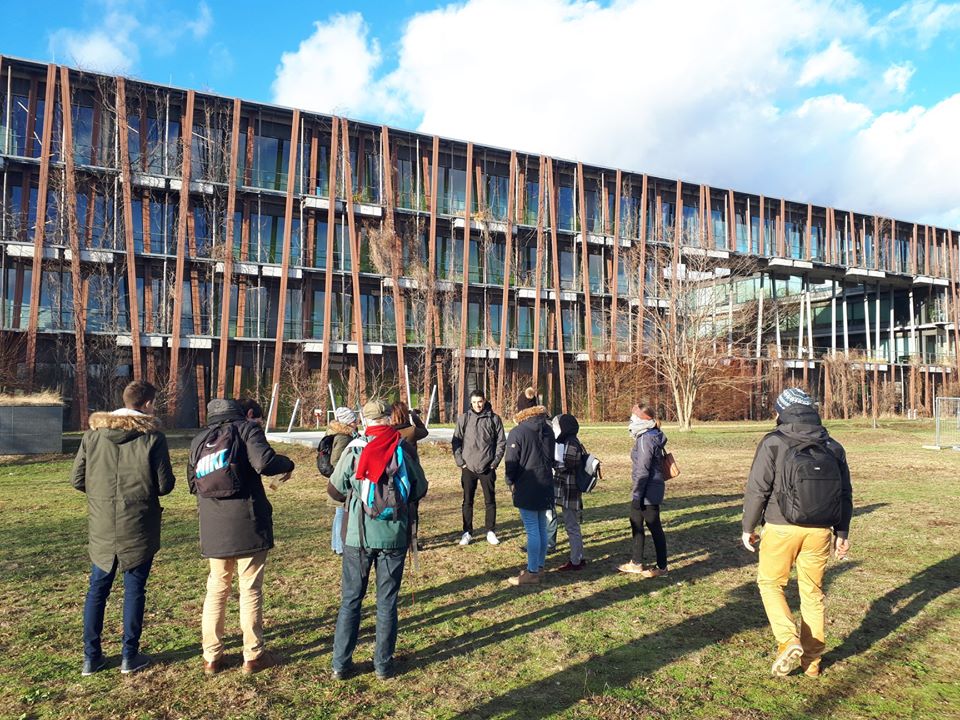
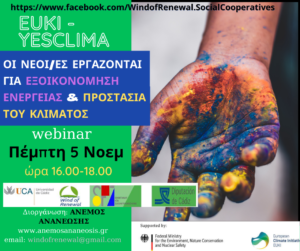
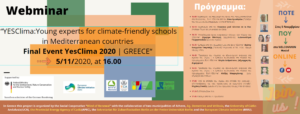
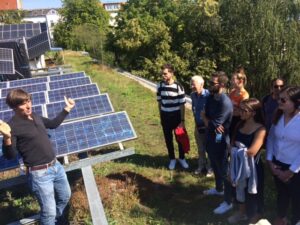
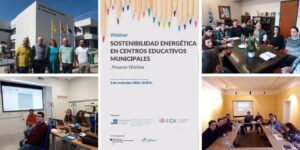

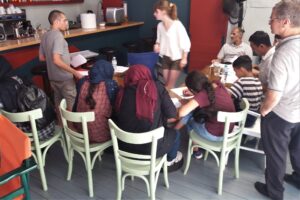
Recent Comments